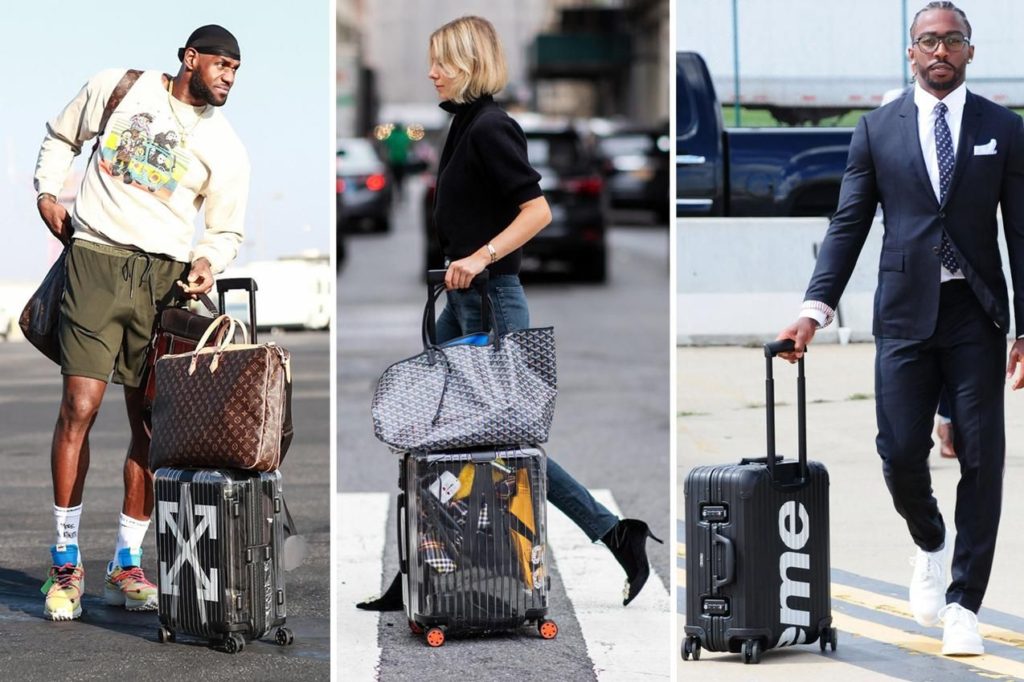
By Jacob Gallagher – Wall Street Journal December 14 2019
BUYING LUGGAGE used to be about as sexy as acquiring a refrigerator. You schlepped to Sears or, if you were feeling fancy, a Tumi boutique, and chose whichever carry-on could hold the most stuff without socks and underwear erupting through the zipper. Today, bagging a new roller-bag from the growing array of status-signifying models can feel more like scoring a pair of the latest buzzy Nikes. “Function kind of has become cool, so all of a sudden luggage has become one of the fastest-growing accessory categories,” explained Beth Goldstein, the fashion footwear and accessories industry analyst at market-research firm NPD Group.
Snazzy-suitcase culture—as chronicled in the endless paparazzi photos of celebrities and influencers snapped at airports and disseminated on blogs and social media—takes two forms. At one end are the affordable yet design-y direct-to-consumer purveyors that are epitomized by New York-based luggage label Away, launched in 2016. On its slick webshop, Away peddles $245 carry-on bags in “limited edition” shades like “Moonstone” (gray). Once they’re sold out, they’re gone for good.
‘Bagging one of these status-signifying bags can feel like scoring a pair of the latest rare Nikes.’
Millennial travelers on a budget and thrifty celebrities alike have cottoned to Away and other suitcase startups like Antler and Arlo Skye. These brands market themselves as the direct-to-consumer “disrupters” of the lackluster, mainstream luggage segment, their bags packed with features aimed at picky and design-conscious types. (See: Arlo Skye’s “antimicrobial lining” and “blazing-fast charger” and Antler’s laptop pocket.) Such brands have mastered the low-key sleekness that is also present in other so-called disrupter products like Allbirds shoes and Everlane sweaters. Their bright websites make buying a bag as mindless and rapid as ordering pad thai off Seamless. And their Instagram accounts blend images of the bags with photos of au courant locales like Tulum, Santorini and Brooklyn. They’re selling a lifestyle where travel is as easy as it is glamorous.
At the other extravagant end of the status market is Rimowa, the 122-year-old German luggage brand that has been turbocharged for the internet age by its millennial CEO Alexandre Arnault, installed in 2017 by the LVMH Group. LeBron James appears in Rimowa’s campaigns; Rihanna and Donald Glover conspicuously travel with the brand’s steel cases in tow; and limited models sell swiftly despite their four-figure price tags. These rare collaborations—with ultra-popular brands including Supreme and Off-White—are then flipped for even more astronomical figures on StockX, an online sneaker and streetwear resale marketplace.








